
Randolph Denard Ornette Coleman was an American jazz saxophonist, trumpeter, violinist, and composer. He is best known as a principal founder of the free jazz genre, a term derived from his 1960 album Free Jazz: A Collective Improvisation. His pioneering works often abandoned the harmony-based composition, tonality, chord changes, and fixed rhythm found in earlier jazz idioms. Instead, Coleman emphasized an experimental approach to improvisation rooted in ensemble playing and blues phrasing. Thom Jurek of AllMusic called him "one of the most beloved and polarizing figures in jazz history," noting that while "now celebrated as a fearless innovator and a genius, he was initially regarded by peers and critics as rebellious, disruptive, and even a fraud."

Donald Eugene Cherry was an American jazz trumpeter, bandleader, and multi-instrumentalist. Beginning in the late 1950s, he had a long tenure performing in the bands of saxophonist Ornette Coleman, including on the pioneering free jazz albums The Shape of Jazz to Come (1959) and Free Jazz: A Collective Improvisation (1961). Cherry also collaborated separately with musicians including John Coltrane, Charlie Haden, Sun Ra, Ed Blackwell, the New York Contemporary Five, and Albert Ayler.

Edward Joseph Blackwell was an American jazz drummer, best known known for his work with saxophonist Ornette Coleman.

The Shape of Jazz to Come is the third album by the jazz musician Ornette Coleman. Released on Atlantic Records in 1959, it was his debut on the label and his first album featuring the working quartet including himself, trumpeter Don Cherry, bassist Charlie Haden, and drummer Billy Higgins. The recording session for the album took place on May 22, 1959, at Radio Recorders in Hollywood, California. Although Coleman initially wished for the album to be titled Focus on Sanity after the LP's fourth track, Atlantic producer Nesuhi Ertegun suggested the final title, feeling that it would give consumers "an idea about the uniqueness of the LP."
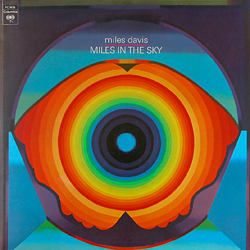
Miles in the Sky is a studio album by the jazz trumpeter and composer Miles Davis. It was released on July 22, 1968, through Columbia Records. It was the last full album recorded by Davis' "Second Great Quintet" and marked the beginning of his foray into jazz fusion, with Herbie Hancock playing electric piano and Ron Carter playing electric bass guitar on opening track "Stuff". Additionally, electric guitarist George Benson features on "Paraphernalia".

This Is Our Music is the fifth studio album by American jazz saxophonist Ornette Coleman, recorded in July and August of 1960 and released on Atlantic Records in March 1961. It was Coleman's first album with drummer Ed Blackwell, and his only album on Atlantic to include a standard, in this case a version of "Embraceable You" by George and Ira Gershwin.

Free Jazz: A Collective Improvisation is an album by the jazz saxophonist and composer Ornette Coleman. It was released through Atlantic Records in September 1961: the fourth of Coleman's six albums for the label. Its title is named the then-nascent free jazz movement. The recording session took place on December 21, 1960, at A&R Studios in New York City. The sole outtake from the album session, "First Take," was later released on the 1971 compilation Twins and subsequent CD reissues of Free Jazz.

Tomorrow Is the Question!, subtitled The New Music of Ornette Coleman!, is the second album by American jazz musician Ornette Coleman, originally released in 1959 by Contemporary Records. It was Coleman's last album for the label before he began a highly successful multi-album series for Atlantic Records in 1959.

Twins is an album credited to jazz composer and saxophonist Ornette Coleman, released by Atlantic Records in 1971. The album was assembled without Coleman's input, comprising outtakes from recording sessions of 1959 to 1961 for The Shape of Jazz to Come, This Is Our Music, Free Jazz: A Collective Improvisation, and Ornette! Sessions for "Monk and the Nun" took place at Radio Recorders in Hollywood, California; for "First Take" at A&R Studios in New York City, and all others at Atlantic Studios also in Manhattan. The track "First Take" was a first attempt at "Free Jazz" from the album of the same name.

Crisis is a live album by the American jazz saxophonist and composer Ornette Coleman recorded at New York University in 1969 and released on the Impulse! label.

Old and New Dreams is the debut album by the jazz quartet Old and New Dreams. The record features trumpeter Don Cherry, saxophonist Dewey Redman, bassist Charlie Haden and drummer Ed Blackwell and was recorded in 1976 for the Italian Black Saint label. It is not to be confused with their 1979 album of the same name for ECM.
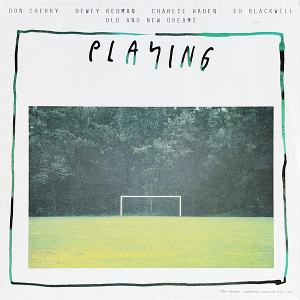
Playing is a live album by American jazz quartet Old and New Dreams recorded at the Cornmarket Theater in Austria and released on ECM the following year. The quartet consists brass section Don Cherry and Dewey Redman and rhythm section Charlie Haden and Ed Blackwell.

The Art of the Improvisers is an album credited to jazz composer and saxophonist Ornette Coleman, released by Atlantic Records in 1970. The album was assembled without Coleman's input, comprising outtakes from recording sessions of 1959 to 1961 for The Shape of Jazz to Come, Change of the Century, This Is Our Music, Ornette!, and Ornette on Tenor. Recording sessions in 1959 took place at Radio Recorders in Hollywood, California; those in 1960 and 1961 at Atlantic Studios in New York City.
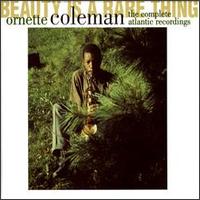
Beauty Is a Rare Thing: The Complete Atlantic Recordings is a box set by American jazz saxophonist and composer Ornette Coleman compiling his master recordings made for Atlantic between 1959 and 1961, released on Rhino Records on November 16, 1993.

Science Fiction is an album by the American avant-garde jazz saxophonist and composer Ornette Coleman, recorded in September and October of 1971 and released on Columbia Records in February 1972.
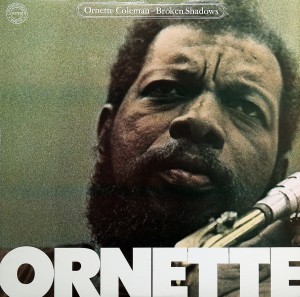
Broken Shadows is an album by the American jazz saxophonist and composer Ornette Coleman recorded in 1971, at the same sessions that produced Science Fiction, but not released on the Columbia label until 1982.
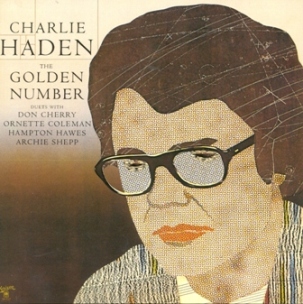
The Golden Number is an album of four duets by bassist Charlie Haden recorded in 1976 and released on the Horizon label in 1977. It was the second of Haden's two duet releases on Horizon, the previous being Closeness (1976). Haden’s duet partners are trumpeter Don Cherry, tenor saxophonist Archie Shepp, pianist Hampton Hawes and alto saxophonist Ornette Coleman. Hawes died shortly before the album’s release, and Haden dedicated the work to him in the liner notes.

Art Deco is an album by jazz trumpeter Don Cherry recorded in 1988 and released on the A&M label. His quartet played at the Village Vanguard before recording the album.
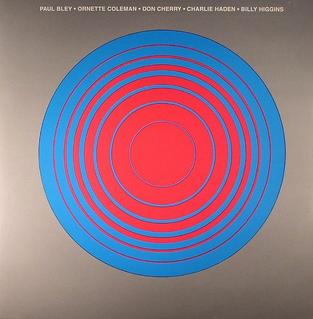
Live at the Hilcrest Club 1958 is a live album by pianist Paul Bley, saxophonist Ornette Coleman, trumpeter Don Cherry, drummer Billy Higgins and bassist Charlie Haden recorded in California in 1958 and released on the Inner City label in 1976. The album was the first live recording of Ornette Coleman, made shortly after he recorded his first album, Something Else!!!! and featuring the group that would soon record the Atlantic albums The Shape of Jazz to Come (1959) and Change of the Century (1960).

Coleman Classics Volume 1 is a live album by pianist Paul Bley, saxophonist Ornette Coleman, trumpeter Don Cherry, drummer Billy Higgins and bassist Charlie Haden recorded in California in 1958 and released Bley's on the Improvising Artists label in 1977. The album is an early live recording of Ornette Coleman, made shortly after his first album, Something Else!!!! and featuring the group that would soon record the Atlantic albums The Shape of Jazz to Come (1959) and Change of the Century (1960).




















